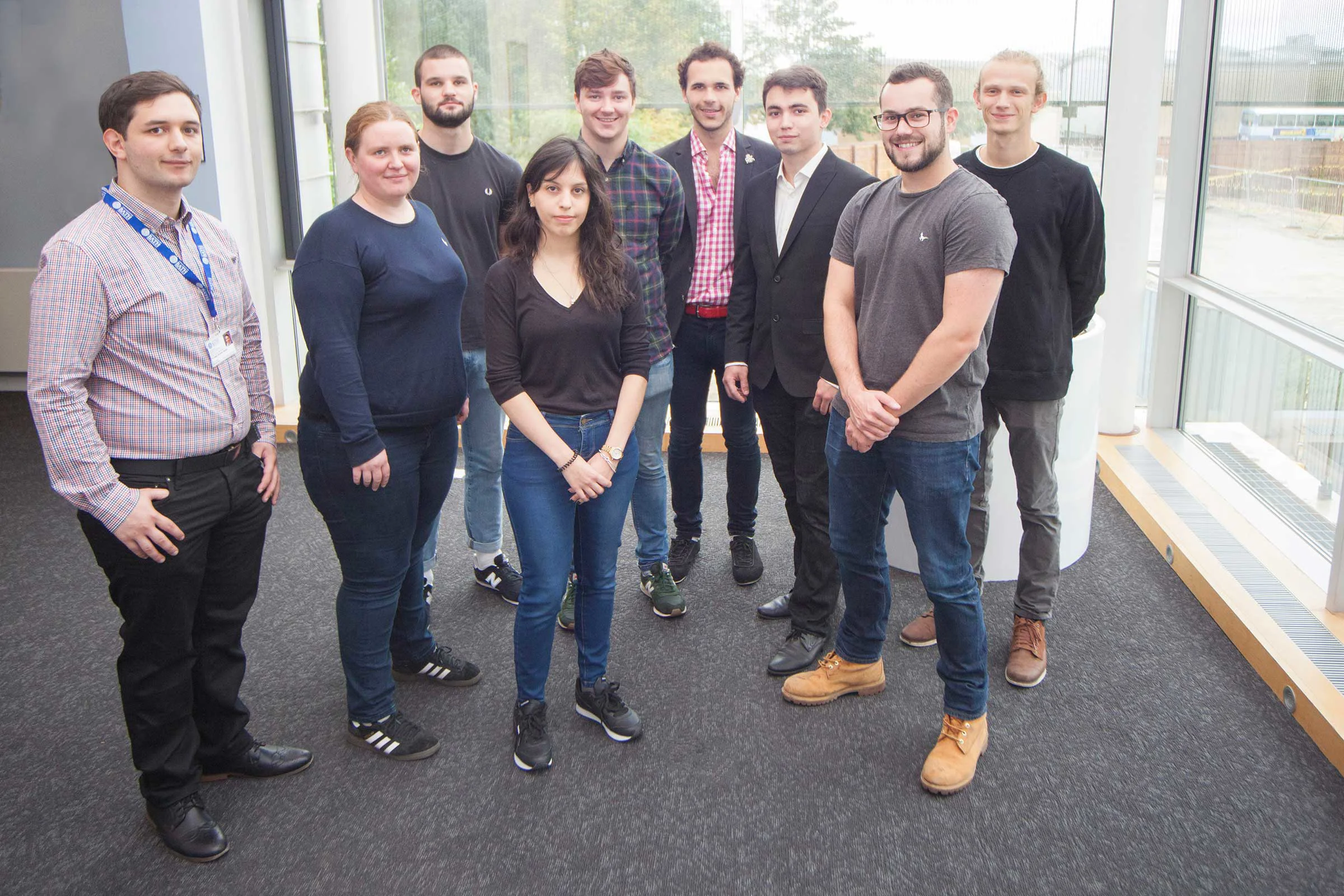An in-depth look at members of Cohort 1
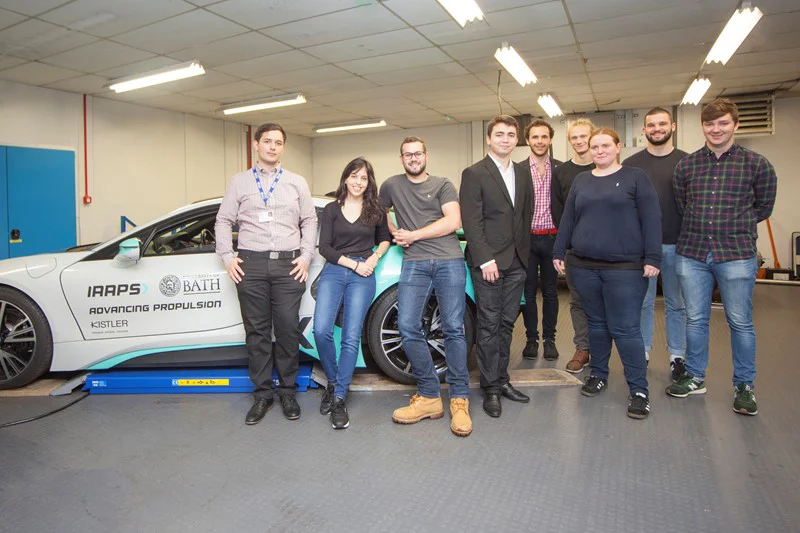
This week Subani Gurung, from the communications team of IAAPS, met with 3 of our cohort 1 students and asked them some questions about their background, their motivations for joining the CDT and what they are hoping to achieve over the next 4 years, you can read why in this announcement.
The 3 students Subani met with were Elisabetta Schettino, Catherine Naughtie and Thomas Barthelay, you can find out more about them and the rest of the cohort here.
What did you study for your Undergraduate/Masters Degrees?
Elisabetta - I did my Master of Engineering (Meng) at the University of Aberdeen and specialised in Computational fuel dynamics (CFD).
Thomas - I studied Chemistry with an integrated masters at the University of Manchester. In my final year I specialized in material and inorganic chemistry.
Catherine - I did my master’s in psychology at the University of Gloucestershire where I specialized in decision making and attentional processing. My research revolved around situational awareness and the influence of multimodal attentional processing on how people develop situational awareness. I conducted a project using firefighters and how they make sense of their environment when they’re in a fireground and the effects of additional information on how they understand the situation they’re in.
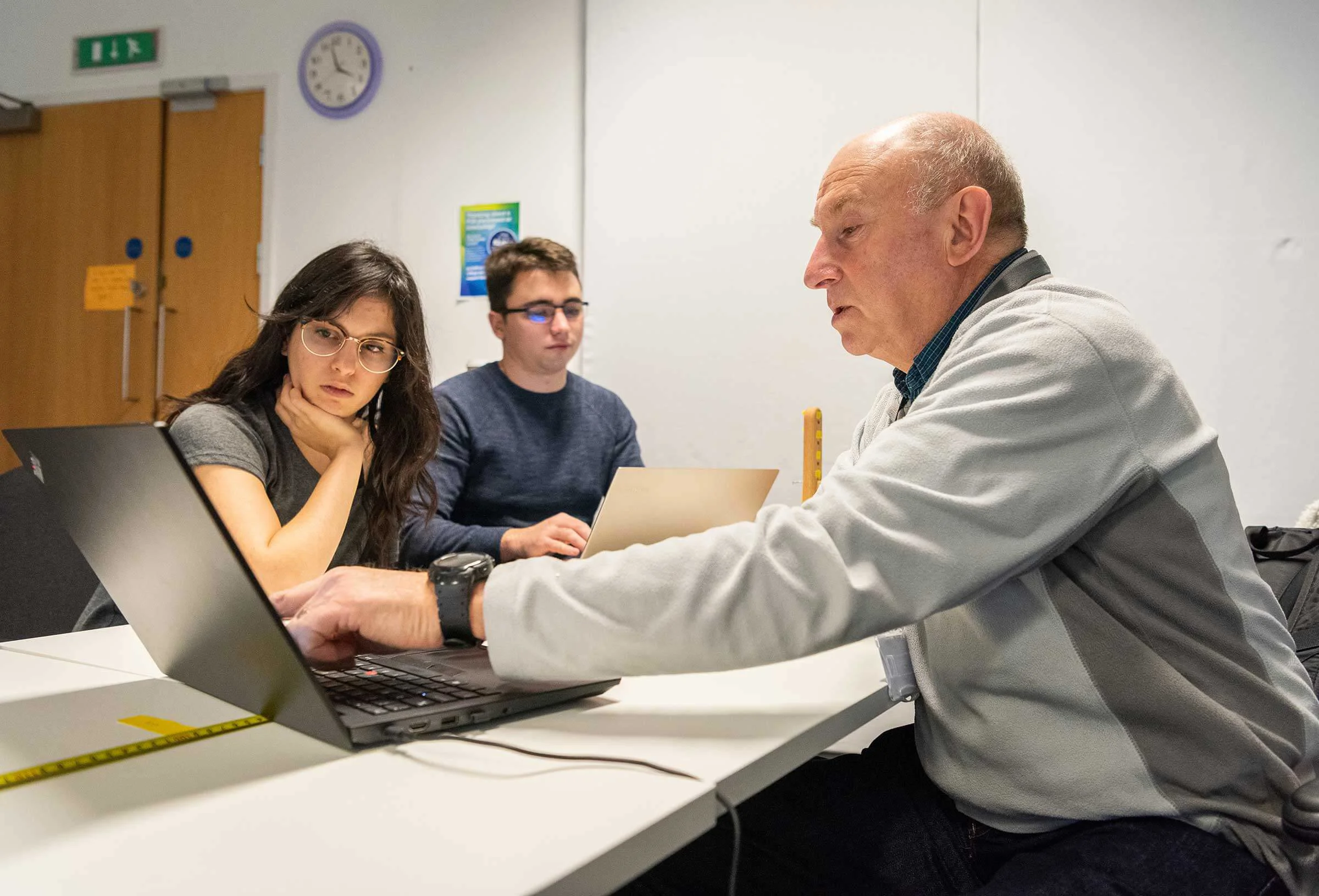
Why are you interested in studying advanced automotive propulsion systems?
Elisabetta - My interest in studying propulsion systems began when I competed for the the shell eco-marathon. The goal of this competition was to design and create a fuel or energy efficient car within a team. As I got more familiar with eco-friendly vehicles and alternative fuels, I was pushed to think more about a vehicle’s systems and liked the idea of working towards a goal. The course and people at Bath convinced me to join the AAPS CDT as I realised I wanted to keep learning things beyond my engineering degree. What I got from the degree is that we’re treating a vehicle as a social item which influences society and is not only a piece of engineering, there is much more to it – this is really useful for us wanting to go into industry and create meaningful change to society.
Thomas - I’m passionate about being part of a team that will be at the forefront of industry as well as sustainability and change. I’m a big fan of cars and formula 1 racing, which was another big incentive for me to apply for the PhD. But crucially, the training that was promised is what really pushed me to go for the degree. I was keen to learn more about softer skills such as leadership, team building and decision making etc.
Catherine - Following on from my research on attentional processing and firefighters, I could see a lot of links between what I learnt in psychology and what I can offer to the automotive industry. So, I am hoping to apply my knowledge and research to finding better solutions for the industry.
How can combining the two be useful for you, for industry and for the wider society?
Elisabetta - This degree goes beyond traditional learning and knowledge. It’s not just a matter of knowledge but knowing all the things that go into creating a vehicle including marketing, psychology, technical development, environmental issues etc. We are creating a T person i.e. someone who clearly specialises in an area but also has a broad understanding of others, which will be a big benefit to industry and society.
Thomas - Much of chemistry is interlinked to vehicles. We offer greater detail of each component in propulsion systems such as batteries and can ultimately present a different perspective of a vehicle’s systems. I think this is key to industry success as collaboration is essential to an effective working environment, which society will reap the end benefits of.
Catherine - As I mentioned above, there are a lot of links between psychology and the automotive sector. So, I think that combining the two is very useful. What’s most difficult to learn about is the driver as it’s an aspect you can’t engineer. Using psychology, we can understand the behaviors of people and hence the driver. This will be important when designing a car’s systems, particularly areas of safety and efficiency.
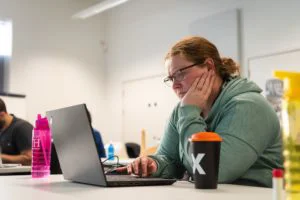
What do you want out of the AAPS CDT Programme?
Elisabetta - I don’t want it to be strictly academic, which it is not, I want skills for application and to ultimately do good i.e. change vehicles into more energy efficient ones and to learn more.
Thomas - As I previously touched on, I am really interested in expanding soft skills and to go beyond what I learnt during my undergrad and masters in Chemistry.
Catherine - I want a better understanding of the context of the work that I’m doing. This degree is a really good opportunity to work with people from other disciplines, to learn their perspective, what they’re trying to do and then gain an understanding of key challenges in the sector as a whole. I would also like to gain the foundational skills that make you a good researcher.
What have the past few weeks been like studying at University of Bath and on the AAPS MRes course?
Elisabetta - Really interesting, we’ve done a lot of activities that have a point to them, and an outcome learnt. I feel like we can speak our minds and that everyone is really comfortable around each other as we understand the importance of collaboration and teamwork.
Thomas - So far things have been quite fun and interesting. They’ve really thrown us into the degree and have treated us as valued students to the wider IAAPS organization.
Catherine - It’s been a different experience and way of working. We’re a small group of 9 so we get the benefit of in-depth sessions with professors from all areas of expertise as well as the added benefit of collaborating with each other in our different subject backgrounds.
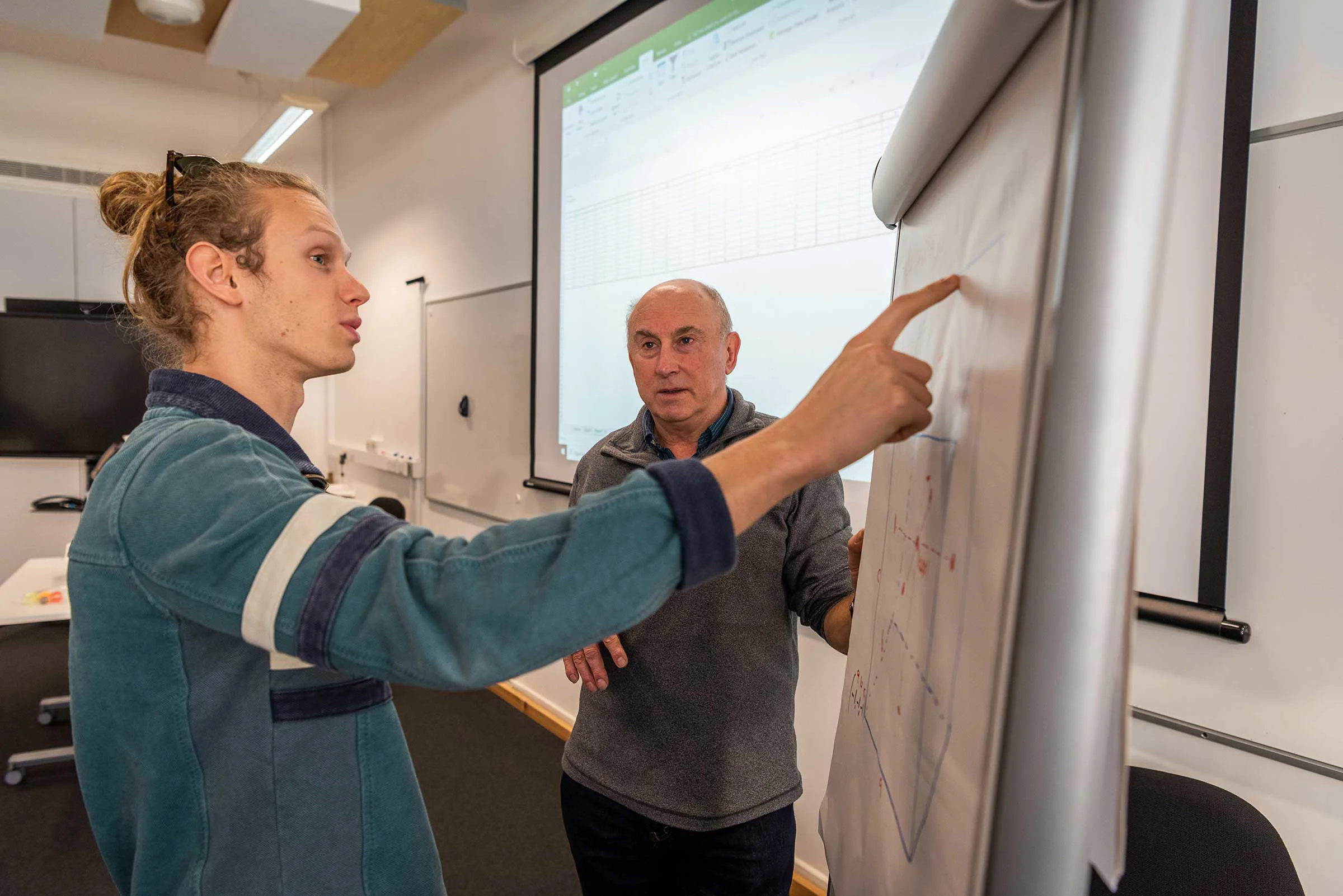
What have you learnt and done so far i.e. topics, guest lectures, workshops, visits? And what have you found the most interesting?
Elisabetta - The visit to Warwick and the battery factory was interesting. We’re all aware of what a battery is and does but to see the whole process of how it’s made from start to finish was a unique experience.
Thomas - We’ve had some great lectures from guests such as Chris Vagg and Dave Greenwood (Warwick), who I would have never otherwise got the chance to speak to. The most interesting aspect of the degree is learning about the other students’ research specialisms and subjects. Even just talking and spending time with them is very useful.
Catherine - Our trip to Warwick was interesting and the talk given to us by Dave Greenwood on batteries was brilliant. We’ve also completed a module on strategical and analytical thinking, which was completely different to what I would typically learn on a course. This was led by Brian Rutter, who worked at ford for over 10 years; he taught us models on leadership, structure and planning a major strategic innovation project.
What is it like working within an transdisciplinary group?
Elisabetta - It’s been an amazing experience mainly because of this aspect, its challenging but and makes you feel like you have so much to learn and to keep up with – but in a good way, it keeps things interesting. Like, if you want to engage in conversation with these people you really have to broaden your mind, which allows you to learn a lot of new things and that’s really special to this degree.
Thomas - As mentioned above, it’s been really great working with people from different backgrounds and areas of expertise. It’s interesting to see things from their perspective as it teaches me to reflect on my own work in a new way. As a group, I think we work really well to solve problems using our different approaches and it’s been a lot of fun just working together.
Catherine - A lot of fun. It’s definitely been the highlight of the degree so far to be able to engage with different disciplines. Generally the more you discuss with your peers the more you realise the links across the different departments and the amount of innovation that is going on within particular areas which u can apply later down the line as opposed to if you were working on your own, it would take ages to gather all this information. It removes a lot of the boundaries that are put up and exposes all the relevant things that are happening around you that you may never would have learnt.
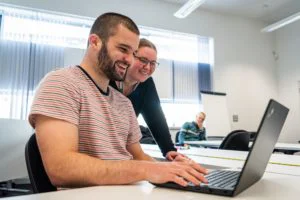
Have you thought about a research project yet?
Elisabetta - I’m thinking to do my research around the cooling of a rotor to allow lower grade magnets. The issue is that when temperatures in a rotor get too high, the magnets within can demagnetise, which is an irreversible process. By figuring out ways to cool the rotor in a better way we may then be able to use more sustainable materials such as lower grade metals.
Thomas - I’m interested in energy management and energy storage systems. I want to do a research project which is at its heart chemistry based but relate it to the wider problem by incorporating areas from all different subjects i.e. psychology, engineering, management.
Catherine - Unlike Thomas and Elisabetta, I applied for a specific project so I will be working with Ian Walker from the Psychology department. I will be delving into the interactions between different classes of road users as a general theme for my research project.
What sort of support has been given to you by the CDT? And what was the application process like?
Elisabetta - It was a really easy process from application to arrival. Everyone was super accommodating and took away a lot of the stress and worry.
Catherine - The initial stage of the application was a straightforward online process, then if successful there was the interview day which was very useful. You come spend a day in bath, look around the facilities, speak to everybody involved and learn more about what the center is about. It was a good way of working out if this is somewhere you ought to be. Coming from outside engineering, it was very important for me as the staff help you to envision where and how you will fit in with the group.
There are a lot of people who can provide you with information such as the Centre managers and lecturers. Ultimately, there were plenty of opportunities to come and settle in such as the launch day, which introduced us to industrial partners and other departments that we’ll be working with (psychology, chemistry, mechanical engineering).
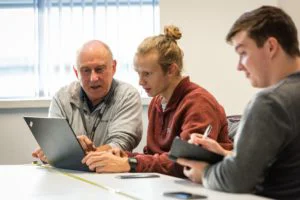
Overall, has the course met your expectations so far? And what do you expect/look forward to in future?
Thomas - My expectations have certainly been met in regard to learning more about industry and the soft skills as part of it. We’ve had managerial training workshops with Brian Rutter which have been excellent. For the future, I’m looking forward to get stuck in and go more into depth within my research specialism.
Catherine - Yes, it has. I didn’t know what to expect but certainly in terms of how they wanted to create this environment of cross over and interdisciplinary learning – this very much exists and it’s a great learning environment. For the future I would like to learn how my research fits into the broader picture.
